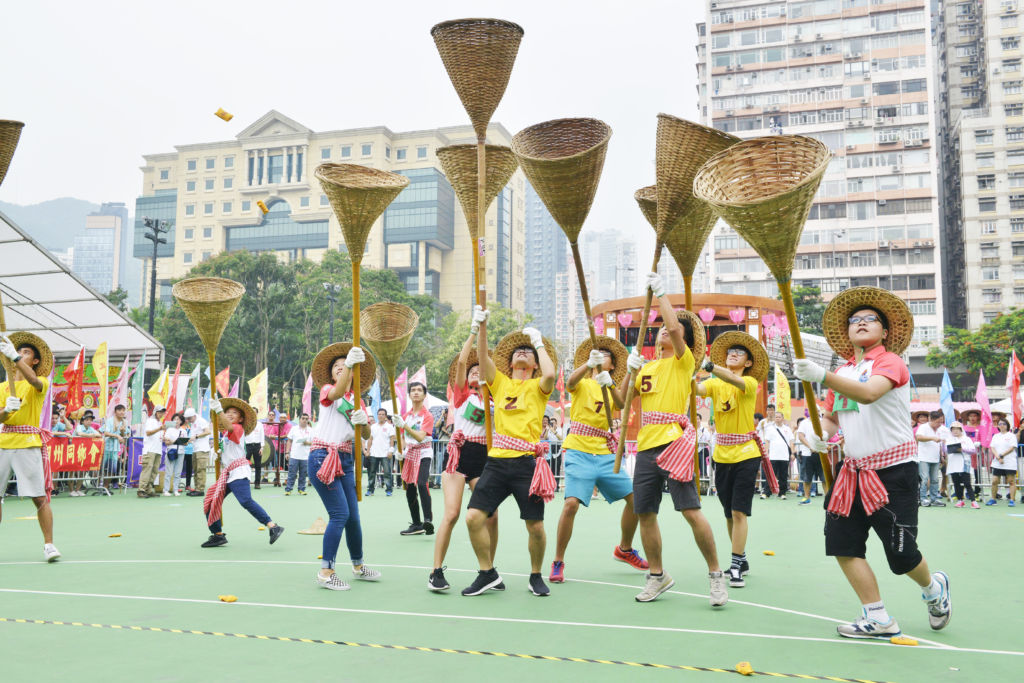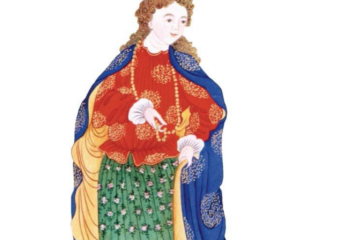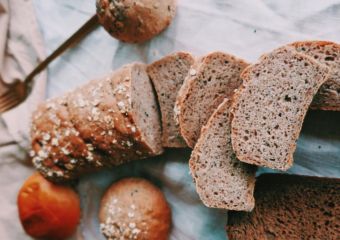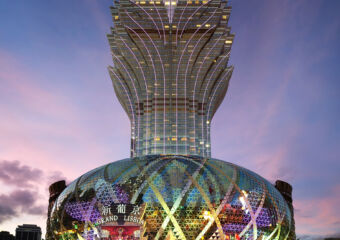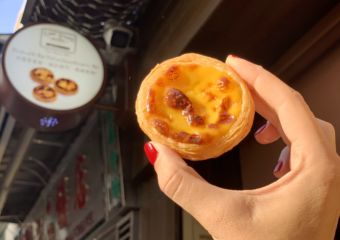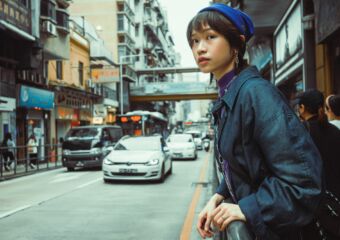The evening is hot and humid–you’re walking alone in a dark Macau back alley and out of nowhere, you hear a mysterious crackling sound. There is no one around, but suddenly you see a flame jump up from a box on the edge of the sidewalk which illuminates the dim concrete in a flash. Further down the street, you hear low mournful murmurings coming from Chinese families who stand, hands clasped together, kneeling amongst blood-red burning candles and incense. There is food scattered around the area and it looks like someone had a feast, but whom? Well, to answer this and put your worries at ease, this is not a ghost story, but is, in fact, all part of the Hungry Ghost Festival which is an ancient celebration steeped in superstition.
Who You Gonna Call?
No, you definitely don’t want to call the Ghostbusters. This festival is all about appeasing, honoring and respecting the ghosts so you don’t want to do anything that might upset them this month. It takes place over the course of the seventh lunar month, which runs from 1 August to 29 August, with the key date being on 15 August. During this Ghost Month, they say the gates of hell stay open until the festival comes to a close after 30 days. During this time you will see people burning incense, ‘hell money’, and other offerings as gifts to appease the restless spirits freed from the underworld. They say spirits with children or grandchildren will return home while lone spirits with unfinished business will roam freely and feast instead.
It’s not all as sinister as it sounds–in fact, the celebration has a lot to do with folk culture, ancestral love and reverence. The Hungry Ghost or Yu Lan Festival has been in practice for over 100 years. For the whole month, and especially on August 15, a range of rituals and celebrations is held both for the living and the dead. You can expect to see Chinese opera performances, lanterns hung or floating in water to help guide the invisible ghosts to operas and banquets, and lots of small fires by the roadsides as people burn their offerings.
Festival Origins
One of the most popular origin stories for the festival features a Buddhist monk, Mu Lian, who was haunted by his deceased mother in the form of a ‘Hungry Ghost’. When she had been alive she was driven by a heartless soul, led by relentless greed, so she was punished in hell where any food reaching her mouth would turn to ash. Deeply saddened, Mu Lian sought advice from Buddha. To help his mother in hell reach heaven sooner, Mu Lian had to organize a grand feast for all hungry ghosts, and soon the Hungry Ghost Festival was born.
In Taoism, the Hungry Ghost Festival is referred to as Zhongyuan. But whether it’s Taoism or Buddhism, the essence and aim of the festival lies in spreading love with an open heart and to help others in need. This is most evident amongst the people coming from Chaozhou–a city in the eastern Guangdong province of China. The widespread practice of the Hungry Ghost Festival was brought to Hong Kong and Macau by the Chiu Chow (people of Chaozhou) community. The first generation of Chiu Chow people immigrated to Hong Kong in the early 20th century. During their travels, many died without proper burials and it was believed that they would face purgatory. The Chiu Chow community highly values brotherhood and respect so, even if many are unrelated to one another, they will still show love and honor to anyone who has passed away through ancestral worship and the Hungry Ghost Festival. They arrange feasts and entertainment for the spirits with the aim of satiating the ghosts’ endless hunger in the underworld and also to bless and bring good luck to the living (what goes around comes around, right?).
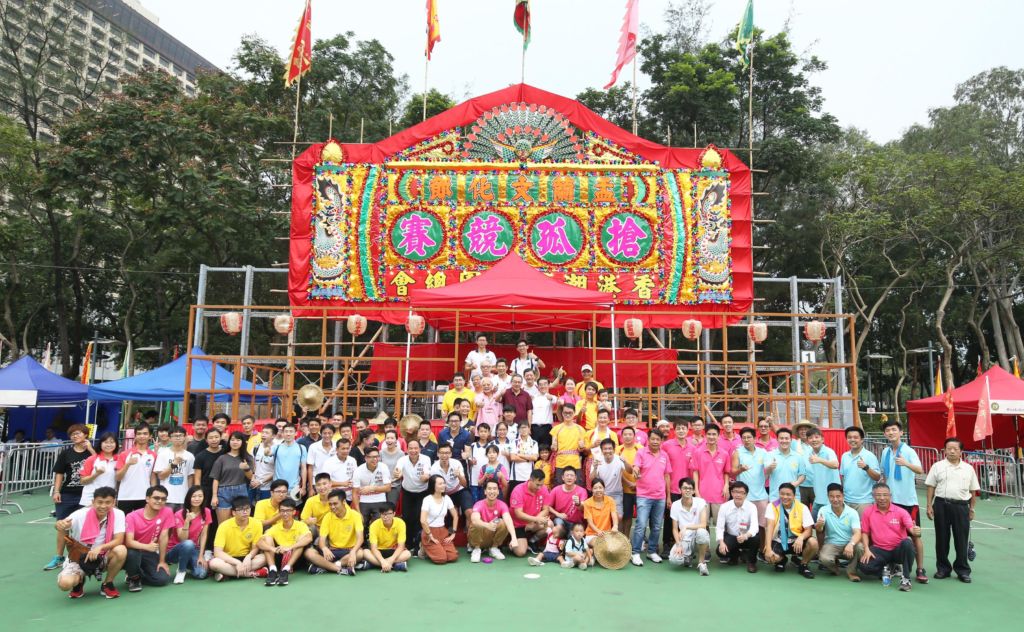
How to Participate
While its practices and importance have diminished somewhat, the Hungry Ghost Festival is still a way to preserve cultural traditions and practices, and pass these on to future generations. The Hungry Ghost Festival was listed as China’s intangible cultural heritage and it is still a fairly big celebration.
Rituals, Do’s and Don’ts
Pay your respect and avoid touching or moving anything that might be an offering on the roadside as these may or may not be by a shrine and might include food, ‘hell money’ and other gifts. To feed the Hungry Ghosts, people usually place a variety of food, including oranges, tea cakes, and meat items. You will also see large tin cans used for burning the offerings for the ancestors and roaming souls. Other paper offerings and replicas of items in the real world are also burnt to give their ancestors a comfy, and often luxurious, afterlife (these days you will find paper models of iPhones, massage chairs, Louis Vuitton shoes, mansions, and more–you name it they’ll have it in the form of an offering for the dead).
Three-Day Carnival
A typical Hungry Ghost Festival celebration usually takes place in the form of a carnival held in and around large bamboo theaters. These will be held in different neighborhoods around Macau and Hong Kong, and usually run for three days–some longer. These carnivals are about entertaining the dead, and the living, and they take in wide open places such as parks and sports pitches. Expect to find some running around 15 August.
Typical Carnival Rundown
Day 1
- A ritual is performed as a formal invitation to welcome the spirits to join the grand feast and there are games, Chinese opera performances, and more. Delicious food and wine are placed all around bamboo theaters as offerings. In one corner of the carnival, a portrait of a ‘guard’ is hung, who is actually the Goddess of Mercy in disguise, there to monitor the spirits, in case ‘they’ get out of hand during the party.
Day 2
- A ritual is performed to ask for blessings involving five tables. These are placed in front of the bamboo theater, each according to a cardinal direction (north, east, south, west) with one in the center. 13 Buddhist householders then hold up small flags in the colors black, red, white, light green and yellow and jog in accordance to the music.
Day 3
- A chanting ritual is conducted before small treats made out of flour are tossed out to the public. It is said whoever gets the most will be most blessed. Rice is also given out and there is be a grand feast in the evening.
A few of these carnivals will be taking place around Macau, but over in Hong Kong they usually hold the biggest in Victoria Park, Causeway Bay. This Yulan Cultural Festival will run from 10:00am–8:00pm from 16–18August. It will take place on Soccer Pitch 1 in Victoria Park. Key highlights include an exhibition showcasing customs and traditions, a VR Experience, a 3D Shooting Area, Exhibition of Historical Photos of Yu Lan, Yu Lan Culture in Asia and more.
Take Note of These Taboos!
- Don’t hang wind chimes over your bed, especially above your head because wind chimes attract restless souls
- Don’t put the front of your slippers facing toward the bed because spirits follow that direction to where the living are located
- Don’t stay out too late, or have your name printed on anything you wear–you don’t want the ghosts calling out your name
- Don’t lean against walls as restless spirits hold on to walls
- Don’t stand your chopsticks vertically in the middle of a bowl of rice. This is similar to incense, and will attract ghosts
- Don’t pat people on the shoulders. A person is said to have three points of energy in the form of fire (one on the forehead, one on each shoulder) and if you put out someone’s ‘fire’ it will lure spirits to them
- It’s bad luck to get married or open a new shop or restaurant at this time–postpone it, if possible
Photos credited to the Federation of Hong Kong Chiu Chow Community Organizations

